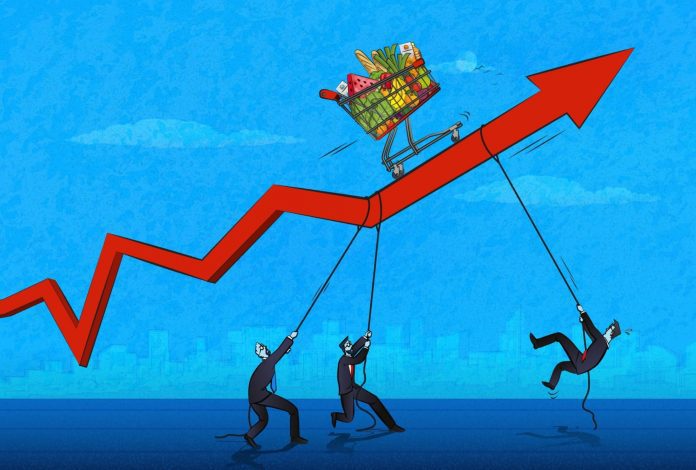The role of price in human interaction is greatly misunderstood, and this misunderstanding is the cause of unbelievable suffering around the world.
If entrepreneurs want to meet widespread human needs and facilitate prosperity instead of suffering, understanding the role of prices in the economy is of almost unparalleled importance.
The mistake that most people make is that price is a feature of a product or service, something as inherent as color or size or a measure of the work that makes it up. That is wrong and dangerous.
Instead, price is the most important piece of information about people’s needs, it magically coordinates economic activity. Price is a signal of specific buyer demand at a particular time.
Because prices are the central coordinating mechanism of human action, interfering with them can only lead to worse outcomes than leaving them to function without interference.
For example, let’s say a parts manufacturer discovers that some customers are currently willing to spend $20 to solve a need that the part solves, but that the part could be steel or aluminum.
Suppose another economic need is to pay $40 for the amount of steel required by the part manufacturer. The parts manufacturer may then choose aluminum as the material because steel is more urgent elsewhere. This coordination does not require “management” or human intervention of any kind, it simply relies on price as a coordination mechanism to direct scarce resources towards their intended use. their most valuable present use.
The Most Controversial Price Is The Cost Of Labor.
There’s really no price for “labor” in the general sense. Instead, there is a price someone is willing to pay for a particular type of work at a particular time. An individual can provide many different services, each with a different price that others are willing to pay.
For example, Ted can be adept at spinal surgery, house painting, cooking, and babysitting. Depending on supply and demand, the current market price for his services could be $500/hour for surgery, $50/hour for painting, $20/hour for cooking, and $10/hour for work.
As Supply And Demand Change, Market Prices Will Change.
And that doesn’t mean any particular individual will pay these prices. It just means that there are people who will choose to pay this and people who will choose not to pay this.
The main competitive concept of valuing labor is the “theory of labor value” advocated by Marx and many “progressive” economists today, who assert that labor, regardless of What is, is inherently valuable. In the software industry, the famous book “Lean Startup” represents an entire generation that has accepted the failure of the work value theory.
They assumed that if they made the software, it had value because they made it. What they realized was that software that no one wanted was worthless, no matter how much time and effort they put into building it.
So they started trying to figure out how to figure out what customers value to fulfill a real human need, then build software to meet that need. Lean Startup advocates may not necessarily understand the concept of pricing described here, but in their hearts, they know that building something that no one wants has no intrinsic value.
Value Of Human Being
Another reason the valuation of labor is controversial is that people confuse it with the concept of the “value” of a human being.
They think paying a surgeon $500 an hour and a babysitter $10 an hour means the world thinks a surgeon is worth 50 times more than a babysitter.
With the previous “Ted” example, it is clear that people can offer many different services at various prices without any service being tied to their “value” as a person.
Labor pricing is simply the signal the market uses to allocate scarce resources. Any interference with this signal reduces the satisfaction of everyone involved.
For entrepreneurs, there are three main points:
First, Understanding the role of price is the first step to understanding human action, and it will help you in every aspect of your business.
Second, Beware of price-controlling temptations for things that at first appear to be undervalued. If you think there is something “unfair” regarding compensation or benefits of any kind, don’t fall into the trap of thinking you can come up with a more equitable solution. You can’t, and all the effort you put into trying to do so will only lead to negative side effects that diminish the benefits you hope to achieve. Instead, always let the price float, and if you think something is unfair, your only moral choice is to teach people to appreciate something other than their current value.
Third, Realize that all prices are currently experiencing major crossovers and this presents opportunities for progress.
When governments try to get results through price controls, whether for products, labor, interest rates, licensing, or other forms of centralized regulation, the only possible outcome is What happens is to privilege specific subgroups at the expense of everyone else, and the common misallocation of resource scarcity. Don’t “optimize breadlines” (links).
Instead, design basic solutions that bypass centrally regulated markets to allow people to participate in the voluntary interactions they would. Whenever you can price free from centralized control, you open up enormous potential for human development.
Conclusion
Price is the vital piece of information that magically coordinates all human activities and this concept deserves a degree of respect and attention that few acknowledge today.























